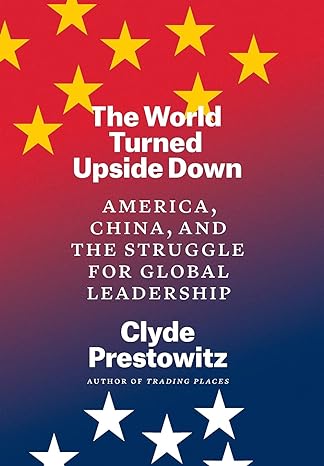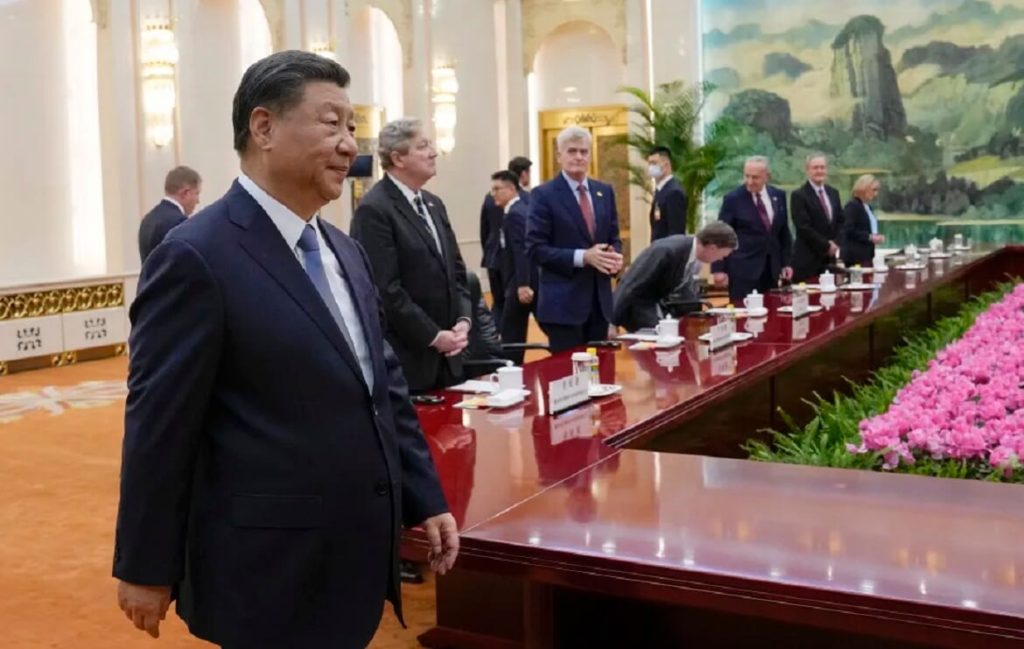World Geostrategic Interview with Clyde Prestowitz on the resumption of congressional delegations visiting China, the challenge China’s rise poses to the Western world, and the U.S. stance toward Taiwan.

Clyde V. Prestowitz Jr. is founder and President of the Economic Strategy Institute. He served previously as an advisor to the Secretary of Commerce in the Reagan Administration and led the first U.S. trade mission to China in 1982, and many U.S. trade and investment negotiations with Japan, China, Latin America, and Europe. Clyde has worked on Asia and globalization for fifty years and is the author of several bestselling books on these topics. He writes regularly for major publications, including The New York Times, The Washington Post, Fortune, and Foreign Affairs.
Q1 – President Biden has taken steps to limit China’s access to sensitive U.S. technologies while trying to keep communication channels open, including expressing willingness to meet Xi at the Asia-Pacific Economic Cooperation summit in November. Also, as part of an effort to stabilize U.S.-China relations, a bipartisan delegation of senators, led by Senate Majority Leader Chuck Schumer, met with Chinese President Xi Jinping in Beijing on Oct. 9. During the meeting, Xi said he hoped for “peaceful coexistence” and “win-win cooperation” between the U.S. and China, while Schumer said that “the best path for the U.S. remains cooperation and fair competition” and that both sides agreed that “if we didn’t have frank conversations about our differences and respond, we would never solve these problems.” Competition, Schumer said, between China and the U.S. is to be expected, the U.S. doesn’t want decoupling, but China must provide a level playing field for American companies and workers. Can you agree? What’s your opinion about the resumption of congressional delegations visiting China?
A1 – I think it is good for congressional delegations to visit China in order to increase their understanding of what China is and is not. But I think such delegations should ask questions and avoid discussing American policy.
 Q2 – In your book, “The World Turned Upside Down: America, China, and the Struggle for Global Leadership,” you describe the major challenges posed by China and you suggest the strategies that the United States and its allies should adopt to address them.Why does the rise of China pose an existential threat to the Western world? What policies do you think the United States should implement to address this serious challenge? Do they include recognition of an ongoing Cold War and a consequent significant degree of decoupling from China?
Q2 – In your book, “The World Turned Upside Down: America, China, and the Struggle for Global Leadership,” you describe the major challenges posed by China and you suggest the strategies that the United States and its allies should adopt to address them.Why does the rise of China pose an existential threat to the Western world? What policies do you think the United States should implement to address this serious challenge? Do they include recognition of an ongoing Cold War and a consequent significant degree of decoupling from China?
A2 – I don’t think China poses an existential threat to the U.S., but I think it does pose a threat to the welfare of the entire free world. China is controlled by the Chinese Communist Party. It has declared that it does not accept the existence of human rights, of freedom of speech, and or rule of law. That is a deeply hostile declaration and should put any free world leader on guard against becoming too close to or dependent upon China. I think a significant degree of decoupling from China is inevitable.
Q3 – Taiwan represents a major issue of friction in the U.S.-China relations, even though Washington has long agreed that “there is only one China and Taiwan is part of it.” Do you think the U.S. should intervene militarily in defense of Taiwan, in the event of an invasion by the PRC, even though this could trigger a major global conflict?
A3 – Actually, the United States has not agreed that there is only one China and Taiwan is part of it. Kissinger explained to Mao and Chou in 1972 that both they and Chiang kai Shek (then the ruler of Taiwan) agreed at that time that there is one China and that Taiwan is part of it. Since both sets of Chinese leaders agreed on this one point, Kissinger and Nixon asked who were they to question that conclusion.
But something happened between 1972 and 2023. Taiwan has become a democracy with a robust electoral system, and it no longer agrees that it is part of China. Now that there is a fundamental division between China and Taiwan with Taiwan no longer agreeing that it is part of China, how can America insist on the opposite? Of course, I do not wish for or seek a war with China over Taiwan, but I don’t think we should play pretend about such a fundamental issue and challenge to democracy.
I hope that Xi Jinping will recognize that if the U.S. does not back Taiwan’s democracy, the meaning of its defense treaties with the likes of Japan, South Korea, the Philippines, Australia, Thailand, and NATO would be called into question.
Clyde V. Prestowitz Jr. – Founder and President of the Economic Strategy Institute.
Image Credit: AP Photo







